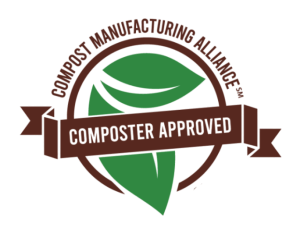CMA News & Blog

CA to WA: A CMA Member\’s Experience
I am a new member of the CMA team, born and raised in a small town in California. Growing up there, I watched different methods for recycling and curbside pick-up...
SPC Guide
Compostable packaging facilitates the diversion of food scraps from landfills. In current times, the use of take-out food has significantly increased demand for single-use products. Food scraps from leftovers are...
Total Fluorine Analysis Requirements
Last Updated: October 25, 2022 Requirements Total fluorine (F) analysis is required for approval or certification by Compost Manufacturing Alliance (CMA) to determine if food service and yard waste packaging...
Great video on Compostable Certifications!
https://www.youtube.com/watch?v=uNvXcjfrrm0&feature=emb_title
Is Contamination Solvable? : Sources of Contamination in Compost Feedstocks. (Part 2)
If you missed it, check out part one of this post here. While a primary source for contamination starts with “ride-a-longs” (plastic bags, plastic water bottles, non-compostable food service ware...
Compost Contamination-Solvable or Not?
One of CMA’s core values is to be a responsible educator in bringing the reality of composting operations to all stakeholders striving for zero waste, mitigating climate change through carbon...
CMA\’s Vision for 2020
An Introduction by Susan Thoman The Compost Manufacturing Alliance (CMA) partners have pioneered the compost production industry for decades. We are comprised of some of the most accomplished compost industry...
Contaminant Of The Month, Condiment Packets – May 2020
Catching Up on the Ketchup Packet Conundrum Large sports events, conferences, school campuses, fairs, and other public facing gatherings serving food provide both opportunities and challenges in striving for zero...
Circular Economy Models & Composting
Circular Economy models encourage the elimination of waste in our supply chain, materials processing, and consumption habits. Commercial composters support this model by investing in businesses that take materials that...
- « Previous
- 1
- 2
- 3
- 4
